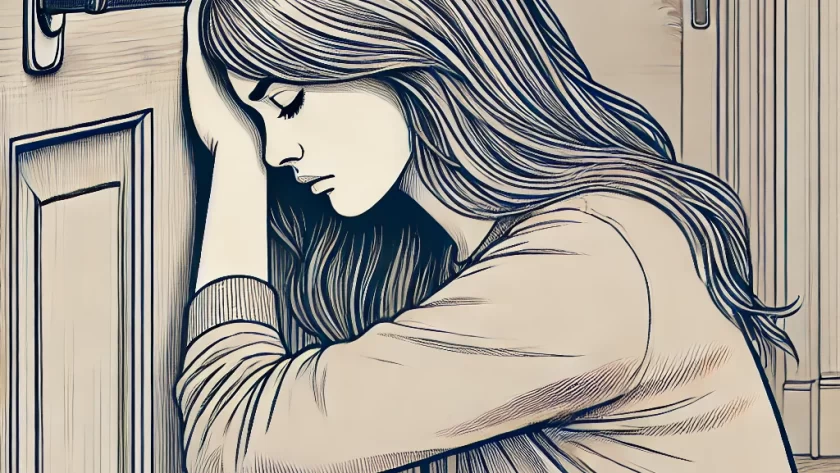真夜中のドア〜Stay With Me [Mayonaka no Doa / Stay With Me]
松原みき [MATSUBARA Miki]
Words : 三浦徳子 [MIURA Tokuko]
Music : 林哲司 [HAYASHI Tetsuji]
“Mayonaka no Door (Stay with Me)” is the first single by Miki Matsubara. The original plan was to name the song “Stay with Me,” but since a song with the same title was released in the same year, “Mayonaka no Door” was added at the last minute.
The composer, Tetsuji Hayashi, is the same as yesterday’s “Kanashii Iro Yane (Osaka Bay Blues).” The song, influenced by the sophisticated American pop music of the time, which later became known as “City Pop,” became a turning point in Hayashi’s career.
In the recent City Pop revival, the song enjoyed a resurgence in popularity in 2020, partly thanks to a cover by Rainych YT, an Indonesian singer and YouTuber.
(To you…yes my love to you yes my love to you you…to you)
私は私 貴方は貴方と
watashi wa watashi anata wa anata to
昨夜言ってたそんな気もするわ
yūbe itteta sonna ki mo suru wa
- 私(わたし) [watashi] : I
- あなた(あなた) [anata] : you
- 昨夜(ゆうべ) [yūbe] : last night
- 言う(いう) [iu] : say
- ..気がする(きがする) [ki ga suru] : feel like
(translation) “I am me, and you are you.
You said it last night, or so it feels.”
It sounds like a line from an argument. Whether this memory was from last night or not is uncertain.
グレイのジャケットに見覚えがあるコーヒーのしみ
gurei no jaketto ni mioboe ga aru kōhī no shimi
相変らずなのね ショーウィンドウに二人映れば
aikawarazu na no ne shōuindō ni futari utsureba
- グレー (ぐれー)[gurē] : gray
- ジャケット (じゃけっと)[jaketto] : jacket
- 見覚えがある(みおぼえがある) [mioboe ga aru] : recognize
- コーヒー [kōhī] : coffee
- しみ [shimi] : stain
- 相変わらず(あいかわらず) [aikawarazu] : as always
- ショーウィンドウ (しょーうぃんどう)[shōuindō] : show window
- ふたり [futari] : two people
- 映る(うつる) [utsuru] : reflect
(translation) “A coffee stain I remember on your gray jacket,
You’re still the same as you were before. We see our reflection in the show window.”

It seems to be a recollection of the past.
stay with me…真夜中のドアをたたき
stay with me mayonaka no doa o tataki
帰らないでと泣いたあの季節が 今 目の前
kaeranaide to naita ano kisetsu ga ima me no mae
- 真夜中(まよなか) [mayonaka] : midnight
- ドア (どあ)[doa] : door
- ドアを叩く(どあをたたく) [doa o tataku] : knock on the door
- 帰る(かえる) [kaeru] : return
- 泣く(なく) [naku] : cry
- あの [ano] : that
- 季節(きせつ) [kisetsu] : season
- 今(いま) [ima] : now
- 目の前(めのまえ) [me no mae] : in front of me
(translation) “Stay with me. knocking on the midnight door.
That season when I cried ‘Don’t go!’ is now before me.”
I’m not quite sure what the situation of “knocking on the door” means. It might be some sort of metaphor, but I’ll give a tentative interpretation. It seems the lover has left the house, and the narrator, filled with sorrow, is knocking on the door from inside, lamenting their departure.

stay with me…口ぐせを言いながら
stay with me kuchiguse o iinagara
二人の瞬間を抱いてまだ忘れず
futari no toki o daite mada wasurezu
大事にしていた
daiji ni shiteita
- 口癖(くちぐせ) [kuchiguse] : habit of saying
- 言う(いう) [iu] : say
- 時(とき) [toki] : time
- 抱く(だく) [daku] : embrace
- まだ [mada] : still
- 忘れる(わすれる) [wasureru] : forget
- 大事にする(だいじにする) [daiji ni suru] : cherish
(translation) “Stay with me. while saying your usual words,
Embracing our moments, still not forgetting,
Cherishing them.”
In this lyric, “瞬間 / shunkan” (=moment) is read as “時 / toki” (=time). Please refer to “Sweet Fake Reading.”
恋と愛とは違うものだよと
koi to ai to wa chigau mono da yo to
昨夜言われたそんな気もするわ
yūbe iwareta sonna ki mo suru wa
- 恋(こい) [koi] : romance, romantic love (noun)
- 愛(あい) [ai] : love (noun)
- 違う(ちがう) [chigau] : different
- もの [mono] : thing
(translation) “Romantic love and deep love are different,
You said last night, or so I feel.”
Another argumentative line has appeared, but setting aside the context, this is an important point. “恋 / koi” (=romantic love) and “愛 / ai” (=love) can sometimes be translated the same, but as you can see, they are distinct words, so it’s essential to differentiate between them.
二度目の冬が来て離れていった貴方の心
nidome no fuyu ga kite hanarete itta anata no kokoro
ふり返ればいつもそこに貴方を感じていたの
furikaereba itsumo soko ni anata o kanjiteita no
- 二度目(にどめ) [nidome] : second time
- 冬(ふゆ) [fuyu] : winter
- 来る(くる) [kuru] : come
- 離れる(はなれる) [hanareru] : leave
- 心(こころ) [kokoro] : heart
- 振り返る(ふりかえる) [furikaeru] : look back
- いつも [itsumo] : always
- そこ [soko] : there
- 感じる(かんじる) [kanjiru] : feel
(translation) “The second winter came, and your heart drifted away.
When I look back, I always felt you there.”
stay with me…真夜中のドアをたたき
stay with me mayonaka no doa o tataki
心に穴があいたあの季節が 今 目の前
kokoro ni ana ga aita ano kisetsu ga ima me no mae
- 穴があく(あながあく) [ana ga aku] : leave a hole
(translation) “Stay with me. knocking on the midnight door.
That season when a hole was left in my heart is now before me.”
stay with me…淋しさまぎらわして
stay with me samishisa magirawashite
置いたレコードの針同じメロディ繰り返していた……
oita rekōdo no hari onaji merodi kurikaeshiteita
- 淋しい(さびしい) [sabishii] : lonely
- まぎらわす [magirawasu] : distract from
- 置く(おく) [oku] : place
- レコード (れこーど)[rekōdo] : record
- 針(はり) [hari] : needle
- 同じ(おなじ) [onaji] : same
- メロディ (めろでぃ)[merodi] : melody
- くり返す(くりかえす) [kurikaesu] : repeat
(translation) “Stay with me. distracting myself from loneliness,
I placed the needle on the record, repeating the same melody.”

stay with me…真夜中のドアをたたき
stay with me mayonaka no doa o tataki
帰らないでと泣いたあの季節が 今 目の前
kaeranaide to naita ano kisetsu ga ima me no mae
stay with me…口ぐせを言いながら
stay with me kuchiguse o iinagara
二人の瞬間を抱いてまだ忘れず 暖めてた
futari no shunkan o daite mada wasurezu atatameteta
- 温める・暖める(あたためる) [atatameru] : warm
(translation) “Stay with me. saying your usual words,
Embracing our moments, still not forgetting, warming them.”
Miki Matsubara was only 19 years old when she recorded this, but her performance is quite confident. Her singing style resembles that of veteran singers, with a touch of Shōwa-kayō or even enka.
Sadly, Matsubara passed away early in 2004 due to cancer. I hope she would be happy to know that this song has made a grand comeback, topping the global viral charts on Spotify for 18 consecutive days and leading to the reissue of the vinyl record.
Thanks for reading! Feel free to comment if you have any feedback or questions.
Follow me on X.



